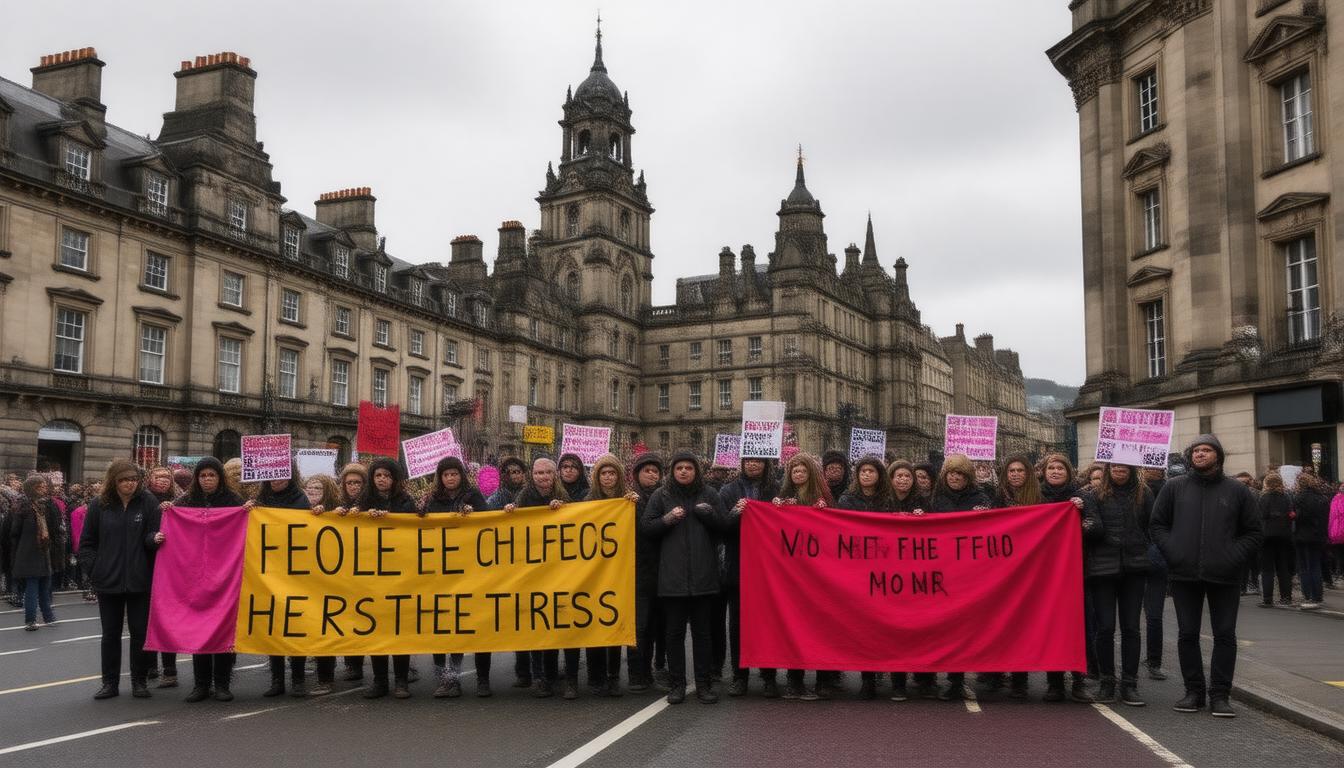In a significant development regarding housing and homelessness in Edinburgh, Shelter Scotland has raised urgent concerns over the current leadership of the City of Edinburgh Council (CEC). The charity accuses the council of breaching the rights of homeless individuals by employing unlicensed houses in multiple occupation (HMOs) and proposing adjustments that would relax existing homelessness laws. This marks a pivotal moment, as it is the first time Shelter Scotland has formally called for governmental intervention regarding a local authority’s actions, necessitating further scrutiny of Edinburgh’s approach to an escalating homelessness crisis.
Key Takeaways
- Shelter Scotland has called for the removal of the Edinburgh Council’s leadership due to alleged violations of homeless individuals’ rights.
- The council faces backlash for proposing to use unlicensed houses in multiple occupation as a temporary measure for housing vulnerable individuals.
- High homelessness rates in Edinburgh continue to escalate, with concerns over the quality of temporary accommodations for over 5,250 families.
Shelter Scotland’s Calls for Leadership Changes
In a significant move, Shelter Scotland has called for the resignation of the leadership at the City of Edinburgh Council, raising serious concerns about their management of homelessness issues in the region. The charity accuses the council of riskily placing homeless families in unlicensed houses in multiple occupation (HMOs) and pushing to relax existing homelessness laws, practices that Shelter deems both illegal and unethical (Shelter Scotland, 2024). This request for leadership changes is unprecedented and has emerged following a contentious housing committee meeting held on December 3, where council members proposed temporarily suspending certain housing rights until March
2028. The council defends this measure as a short-term necessity, arguing that it will help increase available housing for vulnerable families, though Shelter Scotland insists this approach undermines critical human rights (BBC News, 2024). With more than 5,250 families currently residing in temporary accommodations, often in inadequate conditions, the charity’s call reflects growing dissatisfaction with the council’s capacity to manage the escalating homelessness crisis effectively (Edinburgh Evening News, 2024). Alison Watson, director of Shelter Scotland, has openly criticized the council, saying their actions threaten the very foundation of human rights which should be upheld by local authorities.
Edinburgh Council’s Stance on Housing Rights and Homelessness Policies
In response to Shelter Scotland’s serious allegations, the City of Edinburgh Council has issued a statement reiterating its commitment to supporting vulnerable populations while navigating the complexities of the housing crisis. The council outlined that the request to use unlicensed HMOs was meant to address immediate needs without compromising the long-term strategy aimed at reducing homelessness across the city. Officials stressed that no unlawful actions have been taken, highlighting that they are seeking temporary adjustments within a challenging landscape of rising homelessness rates. With over 5,250 families currently housed in temporary accommodations—many of which do not meet adequate living standards—the council contends that creative solutions are necessary to close existing gaps in housing provision (City of Edinburgh Council, 2024). Despite these assertions, public confidence in the council’s ability to manage housing rights has clearly waned, with various advocacy groups calling for more robust protections for those impacted by homelessness policies. The ongoing tension suggests that a constructive dialogue between the council and community organizations will be essential to foster trust and ensure that vulnerable individuals receive the housing support they deserve.





